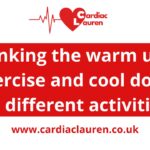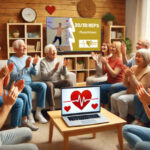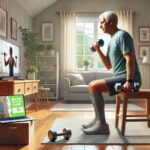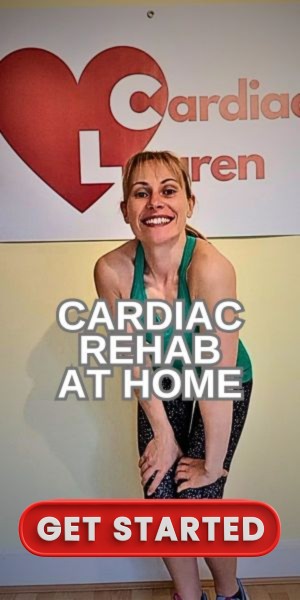As a cardiac rehabilitation specialist, I have spent nearly two decades helping people rebuild their heart health after a cardiac event. One thing I have learned is that recovery is not just about fixing what has gone wrong, it is about empowering people to trust their bodies again, take control of their health, and rediscover the confidence to live full and active lives.
When someone experiences a heart event, it can feel like the world has been turned upside down. The physical recovery can be daunting, but the emotional and mental impact is just as significant. Many people tell me they are afraid to exercise again, unsure of what their limits are, or worried that they might push too hard. They ask questions like, “Is it safe to move?” or “What happens next?”
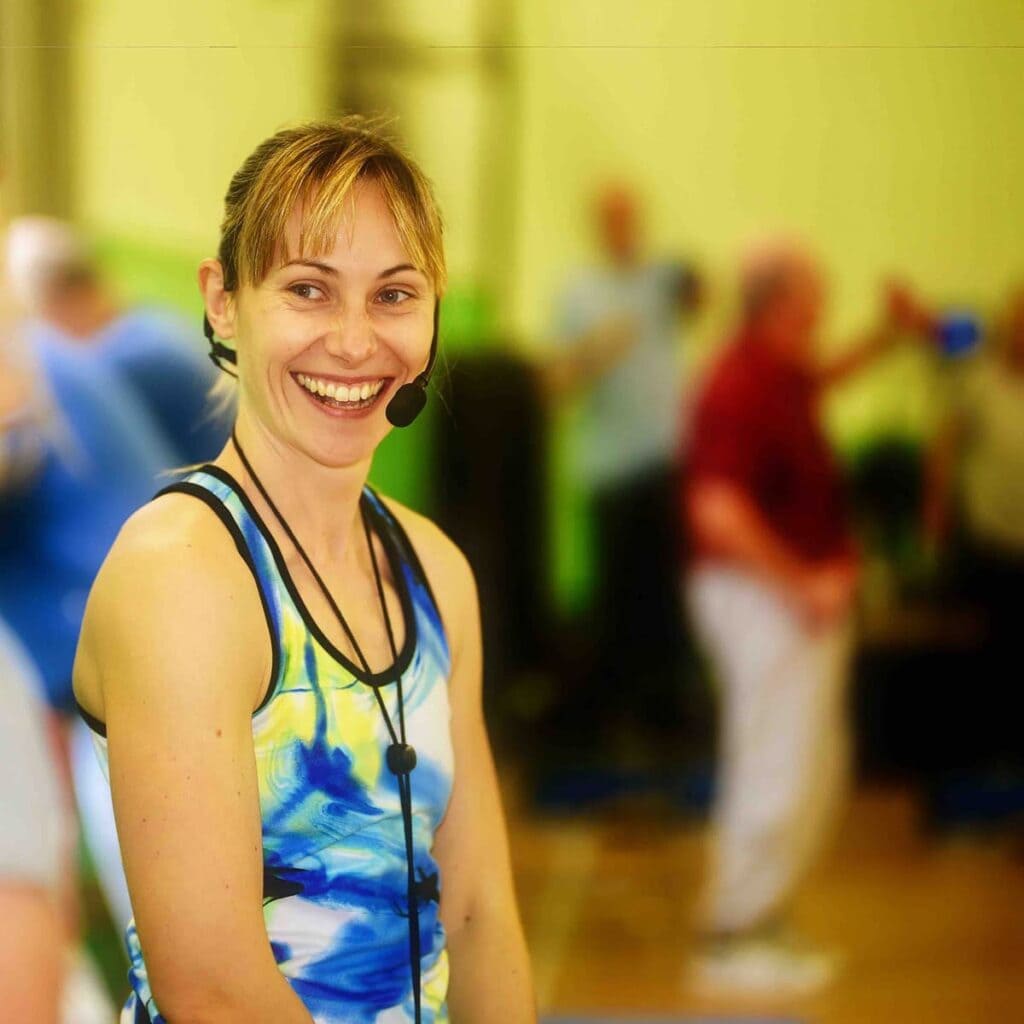
These fears are natural, but they are also something I am passionate about helping people overcome. The right cardiac rehabilitation programme, delivered with care and guidance, can make all the difference.
Table of Contents
What is Cardiac Rehabilitation?
Cardiac rehabilitation is a medically supervised programme designed to improve cardiovascular health after a heart event such as a heart attack, bypass surgery, or angioplasty. It focuses on helping individuals recover physically, emotionally, and mentally while reducing the risk of future heart problems.
Cardiac rehabilitation is typically divided into four phases:
- Phase 1: This phase begins in the hospital immediately after a heart event or surgery. It focuses on early mobilisation, education, and preparing the patient for discharge.
- Phase 2: When discharged from the hospital into the care of the GP and community nurses.
- Phase 3: Conducted in an outpatient setting, this phase involves closely monitored exercise sessions and education on lifestyle changes.
- Phase 4: The final phase focuses on long-term maintenance of heart health through independent or group exercise and ongoing support.
While I offer some Phase 3 support, my primary focus is on Phase 4 cardiac rehabilitation. This phase is critical for helping people sustain the progress they have made while providing the tools and encouragement needed to build a heart-healthy lifestyle.
Why Recovery After a Heart Event Matters
When I speak with people after a cardiac event, many of them feel lost in the process. Often, they receive excellent medical care during the acute stage, but the support to rebuild their lives afterwards can be inconsistent or difficult to access. This is exactly why I created Cardiac Lauren’s online Phase 4 cardiac rehabilitation programmes.
Recovery is not just about getting back to where you were before your heart event. It is about moving forward stronger, healthier, and with a new sense of purpose. This might mean setting achievable fitness goals, such as walking a little further each day, or focusing on building confidence through small, consistent progress in your recovery. By celebrating these milestones, you can regain trust in your body and rediscover your capacity to lead an active and fulfilling life. In my recent article, “How to Safely Rebuild Heart Health After a Heart Event”, I share why prioritising heart health in the weeks and months after a cardiac event is so critical.
Safe and structured exercise is one of the most effective ways to improve heart function, increase energy levels, and reduce the risk of future issues. But cardiac rehabilitation is about more than exercise, it is about confidence, connection, and motivation.
Changing Lives, One Step at a Time
I have always believed that small, consistent steps can lead to life-changing results. That belief drives everything I do. I am passionate about changing the world one person at a time, helping people rediscover what is possible for them after a heart event.
Join Our Cardiac Rehabilitation Family
When people join my programme, they are not just signing up for exercise sessions, they are becoming part of a supportive family.
Members regularly share their progress and encourage each other during live video chats and through our WhatsApp group, where we celebrate milestones and offer support during challenges.
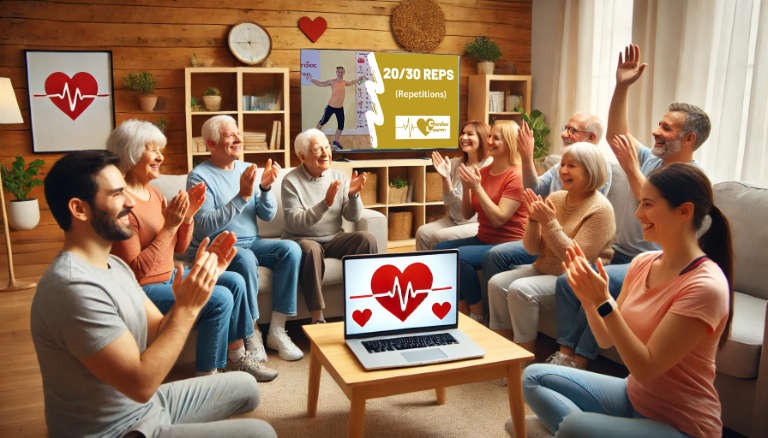
This sense of community fosters genuine connections and makes recovery a shared journey, rather than a solitary process. Recovery can feel isolating, and many people underestimate the value of connection during this time.
“My AF was really bad one day and the WhatsApp group was really supportive by providing coping techniques whilst I waited for my Cardiologist to contact me.”
Cardiac Rehabilitation Is More Than Just Physical Health
One member, for example, shared how the WhatsApp group became a lifeline during their recovery. “My AF was really bad one day and the WhatsApp group was really supportive by providing coping techniques whilst I waited for my Cardiologist to contact me.” they said.
Another member said “I was able to talk to someone else who was experiencing the same side effects from a new medication and we each had more confidence to ask our cardiologists questions at our medication review.”
Stories like these highlight how meaningful connection can transform the recovery journey, turning it into a shared experience filled with encouragement and support. Whether it is through our live video chats or regular WhatsApp chats, I make sure my members know that they are not alone. We celebrate progress, support each other through challenges, and remind one another that every step forward counts.
The feedback I receive from my members is the most rewarding part of my work. I hear things like:
- “I never thought I would feel confident enough to exercise again, but now I look forward to every session.”
- “The support and encouragement have made all the difference. I feel part of something special, and it has helped me trust my body again.”
These stories fuel my passion and remind me why I do what I do. Recovery is not just about regaining strength, it is about reclaiming life.
Why Online Cardiac Rehabilitation Works
One of the biggest barriers to recovery is accessibility. For many people, attending in-person cardiac rehabilitation sessions is not practical due to travel, time constraints, or feelings of self-consciousness. Many individuals feel uneasy exercising in a group setting, worrying about being judged or compared to others. Online programmes address this by allowing participants to exercise privately in a comfortable environment, helping them build confidence at their own pace without external pressure. This is where online cardiac rehabilitation is a game-changer.
My programmes are designed to be safe, flexible, and engaging, so you can participate from the comfort of your own home. Whether you are just starting your recovery or looking to maintain your progress, I tailor the sessions to your needs and fitness level.
Online Cardiac Rehabilitation allows you to:
- Exercise safely in a familiar environment
- Fit sessions around your schedule
- Connect with others who are on a similar journey
Combining Online and Face-to-Face Cardiac Rehab
For some people, attending face-to-face cardiac rehabilitation sessions is invaluable, providing hands-on guidance and in-person support. However, many find that they can only attend one session a week due to scheduling, travel, or other commitments. In these cases, combining online rehabilitation with face-to-face sessions can be an ideal solution.
Online sessions allow people to stay consistent with their recovery, reinforcing what they learn in their in-person sessions while maintaining progress between appointments. This flexible approach ensures that rehabilitation fits into their lifestyle, making it easier to build and sustain long-term heart health habits.
The flexibility of online cardiac rehabilitation makes it easier to stay consistent, and consistency is the key to success.
Take the First Step Towards a Healthier Future
I know how overwhelming recovery after a heart event can feel, but I also know how powerful it is to take that first step. Heart health matters more than ever after a cardiac event, and with the right support, you can rebuild your strength, confidence, and well-being. Remember, every small step you take is a step towards a stronger, healthier future.
As Dr. Dean Ornish says, “Small changes in your lifestyle can make a big difference in your health over time.”

You can also read my full article, “5 things you can do every day to boost your heart health”, for more insights on how to take control of your recovery.
You do not have to face this journey alone. Together, we can take small, meaningful steps towards a stronger, healthier future.

